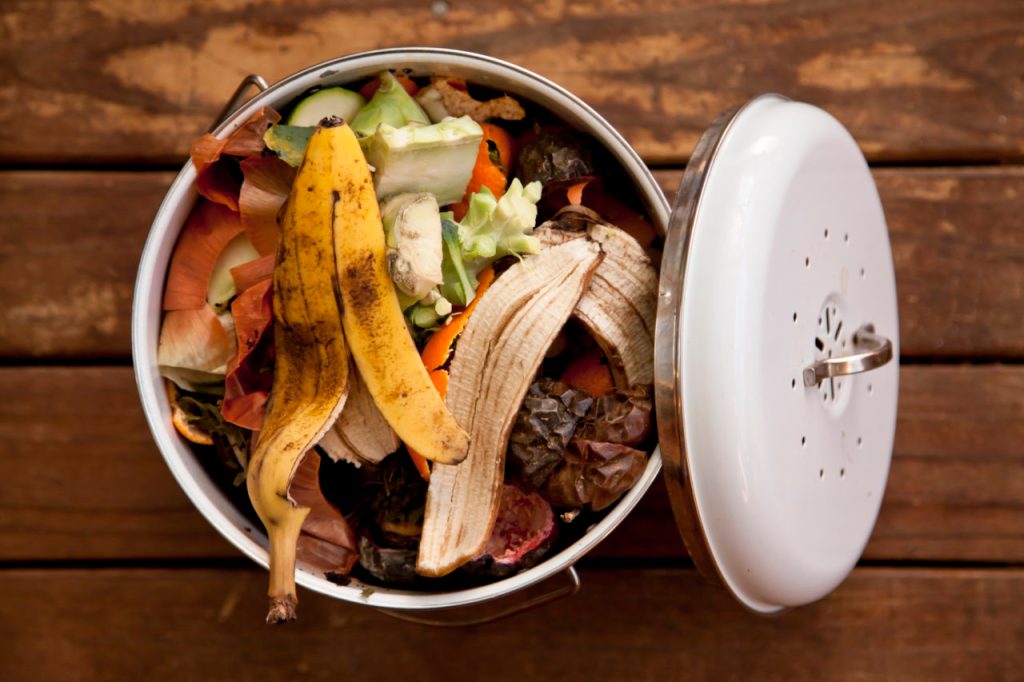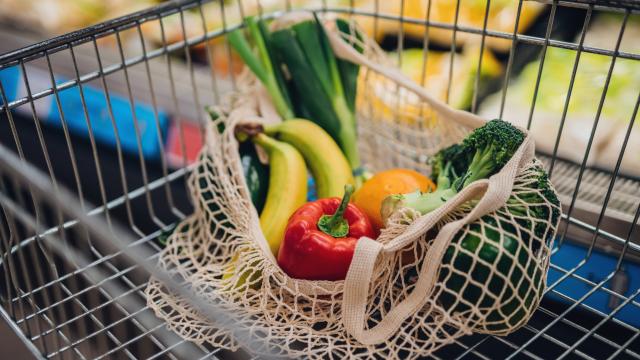If you’re anything like me, the idea of food going to waste brings on an almost unbearable level of stress. For most of my young life, I was given grave warnings from my nonna that I wasn’t to waste one single bite, and seemingly, that has left me with a complex where the idea of throwing something edible (especially fresh fruit and veg) into the bin is now deeply unsettling to me.
And that’s not necessarily a bad thing, because food waste is a huge problem globally. According to data shared by OzHarvest, one-third of all food produced is lost or wasted. That translates to about 1.3 billion tonnes of food and is valued at about $940 billion every single year.
Financially, that’s an issue. Environmentally, it’s also bad news because of all the greenhouse gases contributed by the food in landfill. And then there’s the ethical problem that food waste presents when, according to OzHarvest, one in nine people globally do not have enough food to eat.
And with the cost of living spiking right now, more people than ever are struggling to put food on the table.
So, taking a solid look at all of this, it’s clear that we should be doing more to avoid contributing to the problem. One way is by using the food we buy.
I chatted with the team at Good & Fugly Sydney who delivers curated seasonal boxes of funky-looking (misshapen) fruit and veg to customers’ doors.
The team behind the business shared that:
“The cosmetic standards of supermarkets mean a wild amount of great food never reaches our plates. In fact, 30% of all the world’s farmland is used to produce wasted food. The Good & Fugly team is on a mission to make saving the planet affordable, convenient, and delicious.”
In an effort to help folks use more of their food, Cailie Ford, Clinical Nutritionist Advisor for Good & Fugly shared some tips over email on how to keep your produce fresher for longer.

Here’s what she advised.
Tips for helping your fruit and veggies last longer
Wrap your leafy greens
“Leafy greens are delicate and can turn limp and soggy very quickly if not stored correctly. Rinse with water before wrapping in a paper towel and place in airtight storage in the fridge. Work gently to avoid damaging and bruising the leaves. Try this with mixed lettuce leaves, Asian greens (bok choy, pak choy), kale, baby spinach and chard,” Ford said.
Transfer ripe fruit to the fridge
“Fresh fruit usually needs a couple of days to get perfectly ripe, after which time it can quickly start to bruise and break down. Keep a close eye on fruits such as peaches, nectarines and avocados, because these delicious little morsels are quite delicate and need to be transferred to the fridge as soon as they ripen.”
Store fruits and veggies in airtight containers or snap-lock bags
“Keeping fruits and veg in airtight storage in the fridge will extend their freshness by at least four days, while retaining the moisture within and avoiding oxidation. Also, airtight storage will help to retain key nutrients like Vitamin C and B Vitamins, which are otherwise easily degraded then exposed to air.”
Freeze food
“Store batches in snap-lock bags in the freezer. Frozen fruit and veggies can retain the same nutrients as fresh, and make easy additions to stocks, soups, casseroles and curries. Ensure you chop, then blanch in boiling water for one-two minutes followed by running under cold water to stop the cooking process before freezing. This will ensure your veggies stay crisp and won’t get ‘freezer burn’ which is when foods are exposed to air, and the moisture evaporates. Veggies that don’t freeze so well are potatoes, eggplant, sprouts, and lettuce, but other veg like carrots, celery, zucchini, broccoli, cauliflower, beans, and spinach all freeze beautifully.
“You can also freeze your fresh herbs,” Ford shared. “..this one is an incredible kitchen hack that will change your life. Chop up your fresh herbs and pack into ice cube trays, before pouring over either white wine / oil / water. Voila! No more wasted herbs.”
Separate gaseous foods
“Foods such as garlic, potatoes, onion, bananas and apples emit a gas (called ethylene) that actually speeds up the ripening of other fruits and veggies. Avoid storing these foods together in the pantry, instead storing them in the fridge in separate airtight containers or bags for maximum freshness. An added bonus is that onion, when stored in the fridge, won’t make you cry when you’re cutting it.”
Apply all of these hacks to your grocery shop every week and you should get some added time with your beloved fruit and veg, meaning less waste and more snacks for you. If you’d like a more specific food hack, check out this tip for how to keep avocadoes fresh for up to a week next.
This article has been updated since its original publish date.

Leave a Reply
You must be logged in to post a comment.